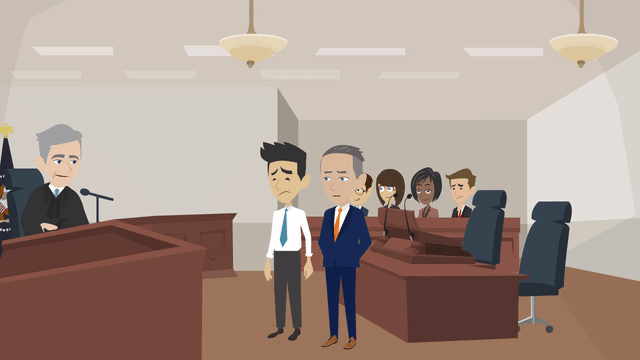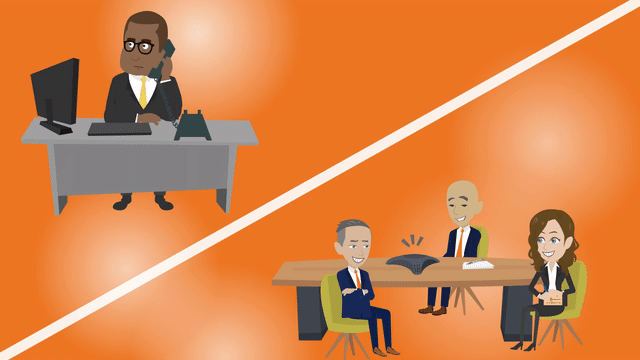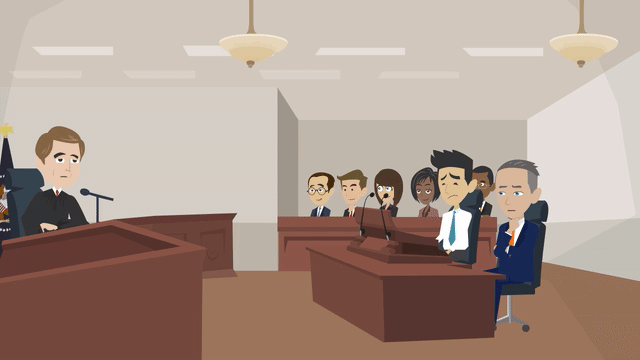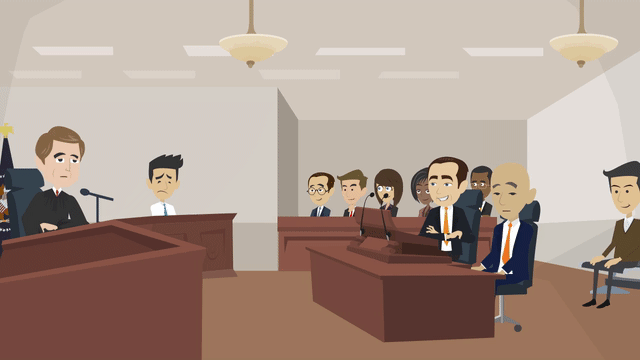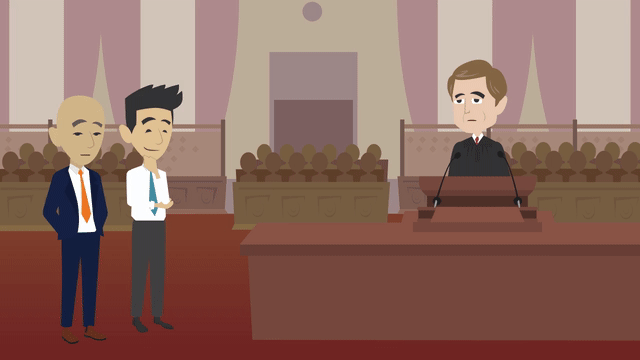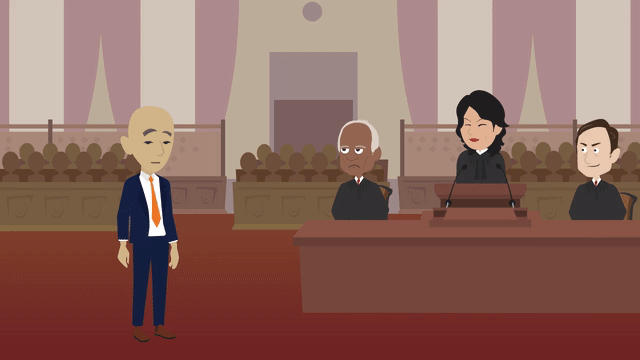Fraud Charges | Lawyers & Attorneys
There are many types of criminal cases that can be brought because of dishonest or deceitful actions. Some of the more common types of fraud cases in New York and Federal Courts are:
- Welfare and Insurance frauds
- Healthcare fraud
- Identity Theft
- Bad Checks
- Mortgage Fraud
- Bank Fraud
- Mail Fraud
- Wire Fraud
- Medicare/Medicaid Fraud
- Criminal Impersonation
- Forgery
- Filing False Instruments
Frequently Asked Questions About Fraud
Our criminal defense lawyers provide answers to some important questions below.
In general, fraud is the intentional use of deceit, a trick, or dishonest means to deprive someone of money, property, or a legal right. As set forth above, there are many types of frauds with different elements that pertain to each crime. Criminal fraud cases and their severity often depend on what was obtained, and how much money was involved. In many cases, the amount of money fraudulently obtained dictates the seriousness of the charge. It is important to contact a criminal lawyer who is experienced in handling fraud cases.
A scheme to defraud is a criminal charge that results when a person engages in a course of conduct with the intent to defraud more than one person or to obtain property from more than one person by false or fraudulent conduct or actions and does actually obtain the property.
Yes. Depending on the allegations, you could be facing both a civil lawsuit as well as a criminal prosecution. In a civil proceeding, you will be sued for money that was allegedly taken as part of the fraudulent act. In a criminal case, the government can seek to punish you with not only restitution or fines, but also potentially jail or probation, and a criminal record. Also, a guilty plea or conviction in a criminal case would likely critically impact your ability to defend yourself in a civil proceeding or to potentially continue to work in certain businesses.
Possibly. Often, state assistance is provided in the form of welfare, unemployment, or HEAP (Home Energy Assistance Program). Any time the state is providing monetary assistance, you must complete paperwork and make certain factual guarantees. Sometimes, guarantees are made on a weekly or monthly basis such as how many hours per week you work, whether you have any other source of income, and how many applications you sent looking for jobs.
Incorrect, inaccurate, or false information, even innocently made, can result in you receiving more money than you legally should. Government agencies often check on information provided to them, and if they find conflicting information, they will contact law enforcement and a prosecutor’s office who will bring charges against you. If a governmental agency contacts you to speak to them about money you have received, you should treat the situation just like you were contacted directly by the police and respectfully request to speak to an attorney.
In New York, simply bouncing a check is not a crime. However, if you wrote the check with knowledge of the insufficient funds, criminal charges would be proper. If you are charged with the crime of Issuing a Bad Check, the business will likely seek prompt payment from you. Before making any payment while charges are pending, talk to your attorney about what is owed and how and when payment should be made.
Yes. If you knew the information was false when you filed it with the state, you may be guilty of a crime. You do not need to receive money to be charged with a crime. Rather, the act of providing the false information itself is a crime. If the information you provided was an innocent error, it may be a simple correction. Whether the government believes the error was a mistake as opposed to a fraudulent act may hinge on: how severe the mistake was; how prevalent it is or how often you made it; if it resulted in a large benefit to you; how obvious it should have been; and how long it takes for you to realize and rectify it. The most important thing is not to ignore or overlook an error when you realize it or when another person brings it to your attention. Your actions upon discovery will be critically analyzed by the government when it reviews the documents for potential criminal charges.
Yes. If your lie makes another person submit to your pretended authority, that likely is a crime. For example, if you are pretending to be a police officer, with fake lights and sirens, badge, and uniform, and pull someone over, you will likely be charged with a crime. Practicing law or medical services while falsely holding yourself out as holding those professional degrees are also crimes.
Maybe. For Forgery charges, what is important is whether the document was made without authorization. It is very common in committed partnerships for one partner to give the other partner the authority to sign a document or check on behalf of the other. Because of that authorization, even though you are signing their name, the document was not falsely made.
However, if spouses each have individual bank accounts, and for those specific accounts they both know only they themselves have authority to write a check, the simple virtue of marriage would not allow one spouse to sign the other spouse’s name. This is also important during separation or during divorce proceedings. Signing any document, financial or otherwise, as your partner during such times can be criminal, and the simple fact that you were still legally married is not a defense.
Yes. In New York, it does not matter if the person lost any money. If you used their credit card without permission, it is a crime. Certainly, if the person did lose money, the more they lost, the more serious the charge against you would be. But even no loss is still a crime. New York’s Identity Theft crimes cover this type of action. While usually we think of this type of fraud for internet or complicated matters, it can also be applied in cases where you use any number of names, codes, or numbers that do not belong to you like somebody’s:
- Telephone number
- Debit / Checking account
- Computer System password
- Electronic signature
Any time you are using any identifying information to benefit yourself, be sure you have the proper authority to do so.
Potentially. If you are a professional who contracts work for homes or businesses, there are facts and circumstances that the government considers when deciding whether they believe a disagreement is a civil contract dispute, or a criminal fraud or theft. The police or prosecutor will consider how much money was paid upfront; how much work was completed, if any; whether any tools or materials were purchased in advance; and the nature and character of the work provided. If the police contact you to discuss the job or the contract, they are likely doing so as part of a criminal investigation and in all cases, you should contact an attorney prior to speaking with them.
Timeline of a Criminal Defense Case
- Whether you just made a big mistake, or are being falsely accused, this can be a very emotional and important time in a case
- It is very important that you remain silent and not answer any questions about the case without a lawyer present
- Contact a criminal defense attorney as soon as possible
- Confirm the lawyer is an experienced criminal defense lawyer
- Meet with the lawyer who will help you understand the process of a criminal case
- If you have been arrested, critical proceedings and time frames begin immediately
- You will appear before a judge who will determine if you will be incarcerated, released on bail or supervision, or released without conditions
- If you are charged with a felony in a town, village or city court, the prosecuting agency will have six months from the date of your arrest to determine whether to present your case to a grand jury to seek an indictment or return your case to a lower court to be handled as a misdemeanor
- Discovery is the exchange of information between the governmental agency prosecuting you, you, and your attorney
- In New York State this process begins shortly after your appearance in court
- You can expect exchange of the following if it exists in your case:
- Police Reports
- Investigative Notes
- Videos / Body Camera Footage / Dash Camera Footage
- Forensic Reports
- Photographs
- Exculpatory Material (Brady)
- Impeachment Material
- You and your attorney may also be engaged in information gathering that includes:
- Freedom of Information Law (FOIL) Requests/Responses
- Additional Witness Interviews
- Expert Evaluations / Disclosures
- Motions are written applications to the court to request any of the following:
- Preclude Evidence
- Suppress Evidence
- Seek a Ruling on a Constitutional Rights Violation
- Seek Outright Dismissal of One or More Charges Based on Legal/Factual Matters
- Request Hearings
- A plea bargain is an offer from the prosecuting attorney to resolve your case
- Whether to plead guilty or not is always a choice you get to make, not your attorney
- Your attorney will meet with you, discuss the facts and the law of your case, and offer advice. A plea offer takes into consideration your charges as well as:
- Prior criminal history if any
- Life experiences
- Evidentiary Problems
- Post-Incident Actions
- Mental Health Counseling
- Substance Abuse Treatment
- Anger Management Treatment
- If you choose not to accept a plea bargain and are heading to trial, there are likely to be hearings to consider the following:
- Preclusion/Suppression of Evidence
- Admissibility of Evidence
- What Prior Criminal History/Bad Acts May Be Introduced by the Prosecutor if You Testify on Your Own Behalf
- During a hearing, there is no jury, and the judge will make factual and legal determinations regarding what evidence will be allowed at trial.
- You have the right to a trial by a fair and impartial jury or by the judge who will act as both judge and jury
- At a trial, the prosecution has the burden to prove your guilt beyond a reasonable doubt
- The judge or jury will listen to the evidence presented and the arguments by the lawyers, apply the facts to the law, and render a verdict of not guilty or guilty
- A Verdict must be unanimous
- If you are convicted at trial, or if you entered a plea bargain, there will be a sentencing date where your punishment will be imposed by the judge
- If you previously entered a plea bargain, the judge will likely impose the agreed upon sentence at that time
- In the event you are convicted, you have the right to appeal
- This is true whether you plead guilty or are convicted after trial
- However, by accepting a plea bargain, you may have waived some of your appellate rights
- It is important that your attorney file a notice of appeal on your behalf and that you discuss the appeal process with your lawyer
LaMarche Safranko Law Testimonials
“The arrest of my husband in 2008 was an extremely difficult and emotional time for our family. The arrest turned our lives upside down. It was sudden and unexpected and had tragic emotional as well as financial consequences. I had no idea what to do under the circumstances….
“Dear George, Andy and Staff,
Thank you all for your kindness and all your help in getting back to my wellbeing and life. I could not have done it without you all. Everything is going so well again. I recommend you highly. Thanks Again!”
“I wanted to express my deepest appreciation to Mr. Andrew Safranko for the exceptional job he did in regards to my legal representation. Mr. Safranko displayed the utmost in professionalism and discretion during the entire court process, and took the time to explain each and every step….
“I wanted to take this opportunity to thank you for your excellent representation on my recent matter. I have worked with lawyers, and in law firms much of my professional life, but I have never encountered the rare mix of skill, integrity and humanity in one individual—you….
“The staff at LaMarche Safranko Law took care of whatever I needed, it was just fabulous. It was top shelf, if I called, I got George. If he was in a meeting, they left him a message. He called me right back after the meeting. Everybody was very courteous and very nice there. If I left a voicemail, everybody got back to me quickly. The level of service was very, very good and I would Highly recommend them.”
“Dear Mr. Safranko,
Thank You so much for answering my question, and so expediently!
The dedication, respect, and consideration with which you treat your clients, current and past, is remarkable. It is why I reached out to you when searching in my time of need, and why I would highly recommend…
“I am an attorney who found himself in the middle of a serious, personal legal matter that compromised not only my personal life but my professional life as well. I immediately contacted Andrew (Andy) Safranko, Esq. Andy worked tirelessly and extremely hard to bring my legal situation to a very favorable resolution. In so doing, Andy not only saved certain aspects of my personal and professional life…
“Dear Andrew and George,
I cannot thank you enough for your hard work, diligence, and selfless manner that you put towards my legal difficulties in Colonie. From the first moment I met you, you helped reassure me that things were going to turn out in a more favorable manner than I originally thought. Clearly, the final result of my court case displays the quality of time and work that you put into this….
“Dear Andy,
Thank you so much for everything you have done for our son over the last three years. This has been a very challenging time for our family and the knowledge that our son has an attorney as capable and amazing as you are has given us peace of mind!
“I cannot thank George E. LaMarche lll and his team for the excellent legal work they provided for my son, and in extension, our entire family. His experience, knowledge of the law, networking ability and communication is second to none. In our case, our son was wrongly accused by a small town police officer and charged with 5 tickets…
“My family and I cannot thank George and his staff enough for all of the support and guidance they have given us over the past six months. Anyone who has ever suffered a personal injury knows how difficult they are to overcome, but I’m glad we had such an intelligent and hardworking attorney on our side so I could focus on my recovery rather than on the details of the case….
“I can honestly say that the best decision I’ve ever made was retaining George LaMarche as my attorney. I was in a situation where everything wasat risk; my career, livelihood, and the ability to provide for my family. In desperation, I contacted over a dozen attorneys. The majority of the lawyers I spoke with promised results without seeing paperwork or knowing valuable facts….
“Throughout the attorney client relationship regarding my personal injury lawsuit, George and his staff continually exhibited tremendous amounts of legal knowledge, skill, and a vast amount of expert resources that ultimately resulted in a final judgment in my favor. George was there every step of the way to explain where we stood and what to expect next and there was never a need to question his professional judgment…
“No one likes to be in a bad situation, but if you need a lawyer George is your man. Not only does he point you in the right direction he offers good advice for your future. As much as we bring him business he does not encourage that next time anticipation….




